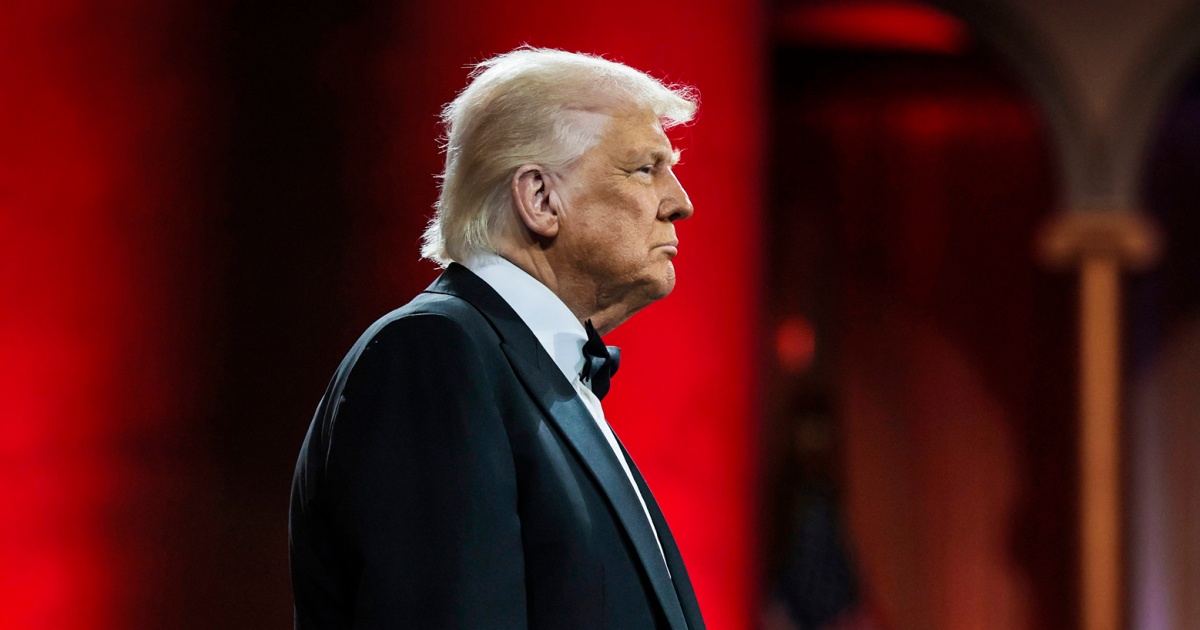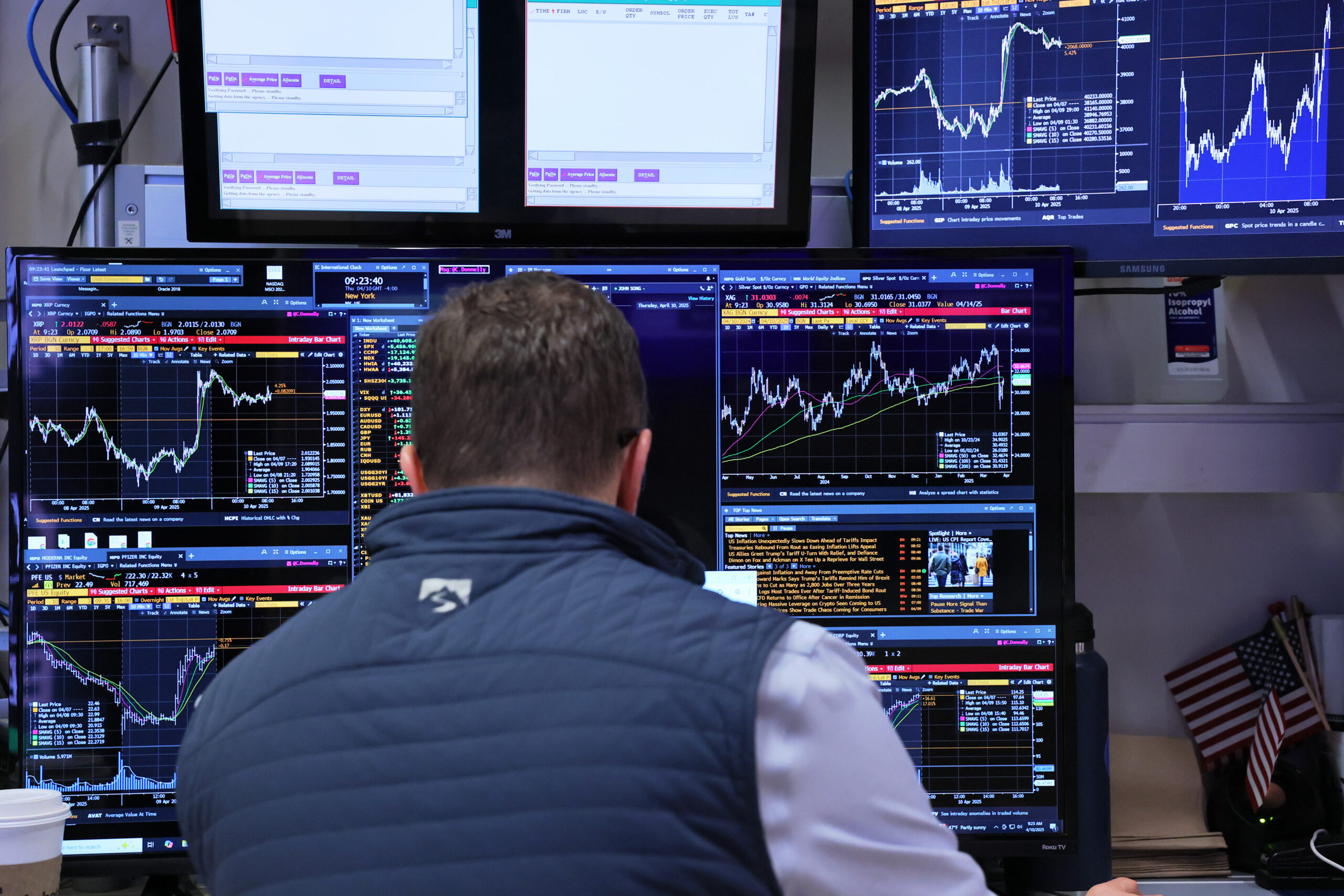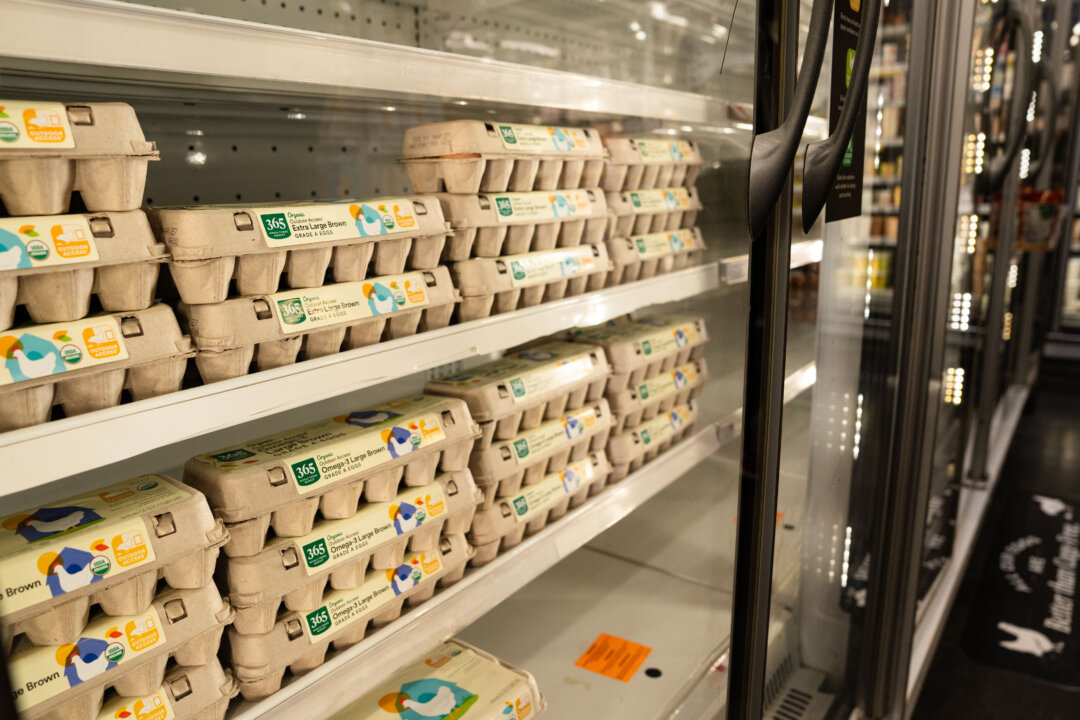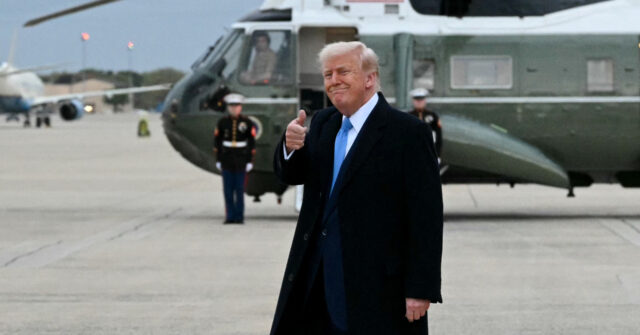Trump Downplays Market Turmoil Amidst New Tariff Conflicts with China
President Trump reassures that market instability from tariffs is a temporary transition issue, while escalating tensions with China escalate tariffs to 145%.

Even with most tariffs targeting individual nations now ostensibly on hold, Trump’s plan still entails the United States’ average effective tariff rate climbing considerably, as a baseline fee of 10% for all imports and 145% for ones from China snap into place — suggesting the cost of imports are still likely to surge.
The full scope of Trump's tariff agenda settles in: From the Politics Desk
 NBC News·8d·ReliableThis source consistently reports facts with minimal bias, demonstrating high-quality journalism and accuracy.CenterThis outlet is balanced or reflects centrist views.
NBC News·8d·ReliableThis source consistently reports facts with minimal bias, demonstrating high-quality journalism and accuracy.CenterThis outlet is balanced or reflects centrist views.
Egg prices hit a record high in March despite optimism from the Trump administration.
US egg prices hit record-high despite White House optimism
 Straight Arrow News·8d·ReliableThis source consistently reports facts with minimal bias, demonstrating high-quality journalism and accuracy.CenterThis outlet is balanced or reflects centrist views.
Straight Arrow News·8d·ReliableThis source consistently reports facts with minimal bias, demonstrating high-quality journalism and accuracy.CenterThis outlet is balanced or reflects centrist views.
The losses for U.S. stocks accelerated in Thursday’s markets after the White House clarified that the United States will tax Chinese imports at 145%, not the 125% rate that Trump had written about in his posting on Truth Social Wednesday, once other previously announced tariffs were included.
 Boston Herald·8d·Mostly ReliableThis source is generally reliable but sometimes includes opinion, propaganda, or minor inaccuracies.Leans RightThis outlet slightly leans right.
Boston Herald·8d·Mostly ReliableThis source is generally reliable but sometimes includes opinion, propaganda, or minor inaccuracies.Leans RightThis outlet slightly leans right.
Major market indices are suffering even worse losses amid the White House’s lack of clarity about when — or if — President Trump’s tariffs will be lifted.
 New York Sun·8d·Mixed ReliableThis source has a mixed track record—sometimes accurate but also prone to bias, sensationalism, or incomplete reporting.RightThis outlet favors right-wing views.
New York Sun·8d·Mixed ReliableThis source has a mixed track record—sometimes accurate but also prone to bias, sensationalism, or incomplete reporting.RightThis outlet favors right-wing views.
U.S. stocks surrendered a chunk of their historic gains from the day before as President Donald Trump’s trade war continues to threaten the economy.
How major US stock indexes fared Thursday, 4/10/2025
 Associated Press·8d·ReliableThis source consistently reports facts with minimal bias, demonstrating high-quality journalism and accuracy.CenterThis outlet is balanced or reflects centrist views.
Associated Press·8d·ReliableThis source consistently reports facts with minimal bias, demonstrating high-quality journalism and accuracy.CenterThis outlet is balanced or reflects centrist views.
A stock market sell-off continued on Thursday, wiping away some of the previous day's rally.
Trump and team downplay continued market turmoil as 'transition cost'
 ABC News·8d·ReliableThis source consistently reports facts with minimal bias, demonstrating high-quality journalism and accuracy.CenterThis outlet is balanced or reflects centrist views.
ABC News·8d·ReliableThis source consistently reports facts with minimal bias, demonstrating high-quality journalism and accuracy.CenterThis outlet is balanced or reflects centrist views.
This could mean that consumers and businesses that rely on eggs might not get much immediate relief.
Retail Egg Prices Continued to Rise in March, Data Show
 Epoch Times·8d·Mixed ReliableThis source has a mixed track record—sometimes accurate but also prone to bias, sensationalism, or incomplete reporting.RightThis outlet favors right-wing views.
Epoch Times·8d·Mixed ReliableThis source has a mixed track record—sometimes accurate but also prone to bias, sensationalism, or incomplete reporting.RightThis outlet favors right-wing views.
A persistent increase in bond yields could result in elevated prices, higher borrowing costs and severely weakened economic growth, with a recession a distinct possibility.
Why Bonds, Not a Recession, May Have Driven Trump's Tariff Pause -- And How It Could Affect You
 CNET·8d·ReliableThis source consistently reports facts with minimal bias, demonstrating high-quality journalism and accuracy.CenterThis outlet is balanced or reflects centrist views.
CNET·8d·ReliableThis source consistently reports facts with minimal bias, demonstrating high-quality journalism and accuracy.CenterThis outlet is balanced or reflects centrist views.
Still, many Americans have expressed dissatisfaction with Trump’s handling of the economy thus far in his second term, with the majority of voters, 54%, disapproving of Trump’s early job performance on the economy, while only 44% approve, according to an NBC News poll released March 16.
Trump Notches Win As Inflation Eases More Than Expected In March
 Daily Caller·9d·Mixed ReliableThis source has a mixed track record—sometimes accurate but also prone to bias, sensationalism, or incomplete reporting.RightThis outlet favors right-wing views.
Daily Caller·9d·Mixed ReliableThis source has a mixed track record—sometimes accurate but also prone to bias, sensationalism, or incomplete reporting.RightThis outlet favors right-wing views.
The March report demonstrates Trump was right that prices could be brought down.
Promises Made, Promises Kept: Consumer Prices Fell In March, Defying Predictions of Tarifflation
 Breitbart News·9d·Mixed ReliableThis source has a mixed track record—sometimes accurate but also prone to bias, sensationalism, or incomplete reporting.RightThis outlet favors right-wing views.
Breitbart News·9d·Mixed ReliableThis source has a mixed track record—sometimes accurate but also prone to bias, sensationalism, or incomplete reporting.RightThis outlet favors right-wing views.
Summary
In March 2024, U.S. consumer prices fell 0.1%, influenced by a 2.4% drop in energy costs, marking the first decline since May 2020, with core inflation at 2.8%. President Trump highlighted this as a victory amid concerns over rising food prices and instability from new tariffs. As of April 2025, Trump’s administration downplayed the ongoing market turmoil from tariffs as 'transition costs.' Global markets saw volatility, especially with the announcement of a 145% tariff on Chinese imports, provoking fears of a serious trade war, despite Trump's optimism about a favorable resolution with Beijing.
Perspectives
Trump and his team downplay continued market turmoil as 'transition costs,' insisting the economy remains fundamentally strong despite the turmoil caused by tariffs.
After a brief moment of market relief, stocks plunged again, reflecting ongoing uncertainties regarding Trump's trade policies, particularly around China where tariffs reached 145%.
Administration officials remain optimistic about trade negotiations, highlighting plans to engage with smaller nations, but they also acknowledge potential consequences if no agreements are reached within the 90-day tariff pause.
FAQs
History
- 8d
- 8d